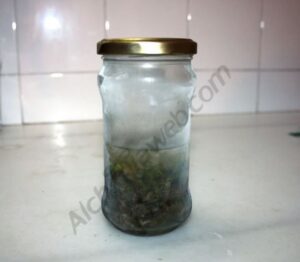Does Alcohol Destroy Terpenes?
Alcohol Destroy Terpenes
You may have wondered: Does alcohol destroy terpenes? This question has many answers, but we’ll focus on the question of ethanol. In general, ethanol destroys terpenes in plants. These compounds contribute to the unique characteristics of plants. They contribute to color and pigment in leaves and flowers, provide aroma, and even contribute to plant flammability. However, there are some cases where alcohol does destroy terpenes.
Ethanol extraction is a common way to extract CBD, but this also results in ethanol loss of Buy terpenes online. Ethanol destroys terpenes by volatilizing. Once removed, these terpenes are not recovered by ethanol extraction. Instead, ethanol is removed from the extract during distillation and winterization. In these cases, ethanol can destroy some terpenes, but not all.
One method of extracting terpenes from cannabis is fractional distillation, or short path distillation. Short path distillation involves using distinct boiling points to separate terpenes and cannabinoids. First, the lowest-boiling terpene or cannabinoid is evaporated. The next lowest-boiling terpene or cannabinoid is collected in the same way. This process is repeated until all components have been separated.

Does Alcohol Destroy Terpenes?
Terpenes have multiple benefits. They improve the flavour and smell of hemp products. Terpenes also affect the way we sleep. This is why many cannabis manufacturers are now experimenting with these compounds to mimic the terpene profile found in the flowers. Some researchers even believe that these chemicals have therapeutic properties. However, more research is necessary to discover how terpenes affect the human body. There are currently many studies to answer this question, but only a handful of people have confirmed that alcohol destroys terpenes.
Interestingly, ethanol does not have a significant impact on terpene recombination. One study also investigated the effect of ethanol on a variety of terpenes. Various levels of alcohol had a similar effect, but in very small concentrations. Interestingly, ethanol did not affect borneol. In fact, it decreased borneol by more than 40% and reduced its effect on terpene recombination.
Alcohol can affect the aroma expression of terpenes in Chrysanthemum essential oils. A combination of six different terpene alcohols was used. Five groups of terpene alcohols showed different performances in addition and omission tests. Alcohols reduced the olfactory threshold, which was useful in determining the aroma intensity of these mixtures. Interestingly, ethanol and methanol did not have the same effect on aroma.
Although ethanol is an effective solvent for extracting CBD, it does not preserve the terpene profile in the final oil. Alcohol readily combines with water and breaks down water-soluble compounds. In addition, it can also be used multiple times, reducing the amount of unwanted compounds. The best way to preserve a terpene profile in the output oil is to perform multiple ethanol extractions. If you do have to use alcohol, then you can choose 99.9% Food Grade Isopropyl Alcohol.